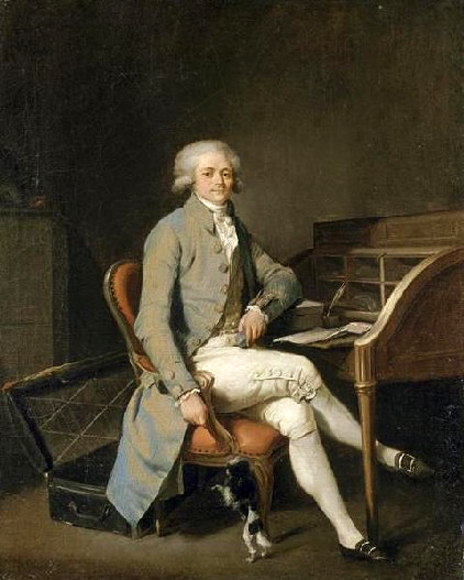Louis-Léopold Boilly
French Painter and Printmaker, 1761-1845
Louis-Léopold Boilly (5 July 1761 – 4 January 1845) was a French painter and draftsman. A gifted creator of popular portrait paintings, he also produced a vast number of genre paintings vividly documenting French middle-class social life. His life and work spanned the eras of monarchical France, the French Revolution, the Napoleonic Empire, the Bourbon Restoration and the July Monarchy.
Boilly was born in La Bassée in northern France,[2] the son of a local wood sculptor.[3] A self-taught painter, Boilly began his career at a very young age, producing his first works at the age of twelve or thirteen.[1] In 1774 he began to show his work to the Austin friars of Douai who were evidently impressed: within three years, the bishop of Arras invited the young man to work and study in his bishopric. While there, he produced a cascade of paintings – some three hundred small works of portraiture.[1] He received instruction in trompe l'oeil painting from Dominique Doncre (1743–1820)[4] before moving to Paris around 1787.[1]
Boilly was a popular and celebrated artist of his time. He was awarded a medal by the Parisian Salon in 1804 for his work The Arrival of a Mail-coach in the Courtyard of the Messageries. In 1833 he was decorated as a chevalier of the nation's highest order, the Legion d'Honneur.[1]
At the height of the revolutionary Terror in 1794, Boilly was condemned by the Committee of Public Safety for the erotic undertones of his work. This offence was remedied by an eleventh-hour discovery in his home of the more patriotic Triumph of Marat (now in the Musée des Beaux Arts, Lille) which saved him from serious penalties.
Boilly died in Paris on 4 January 1845.[1] His youngest son, Alphonse Boilly (1801–1867), was a professional engraver who apprenticed in New York with Asher Brown Durand.[5]
From Wikipedia











































.jpg)

















ليست هناك تعليقات:
إرسال تعليق